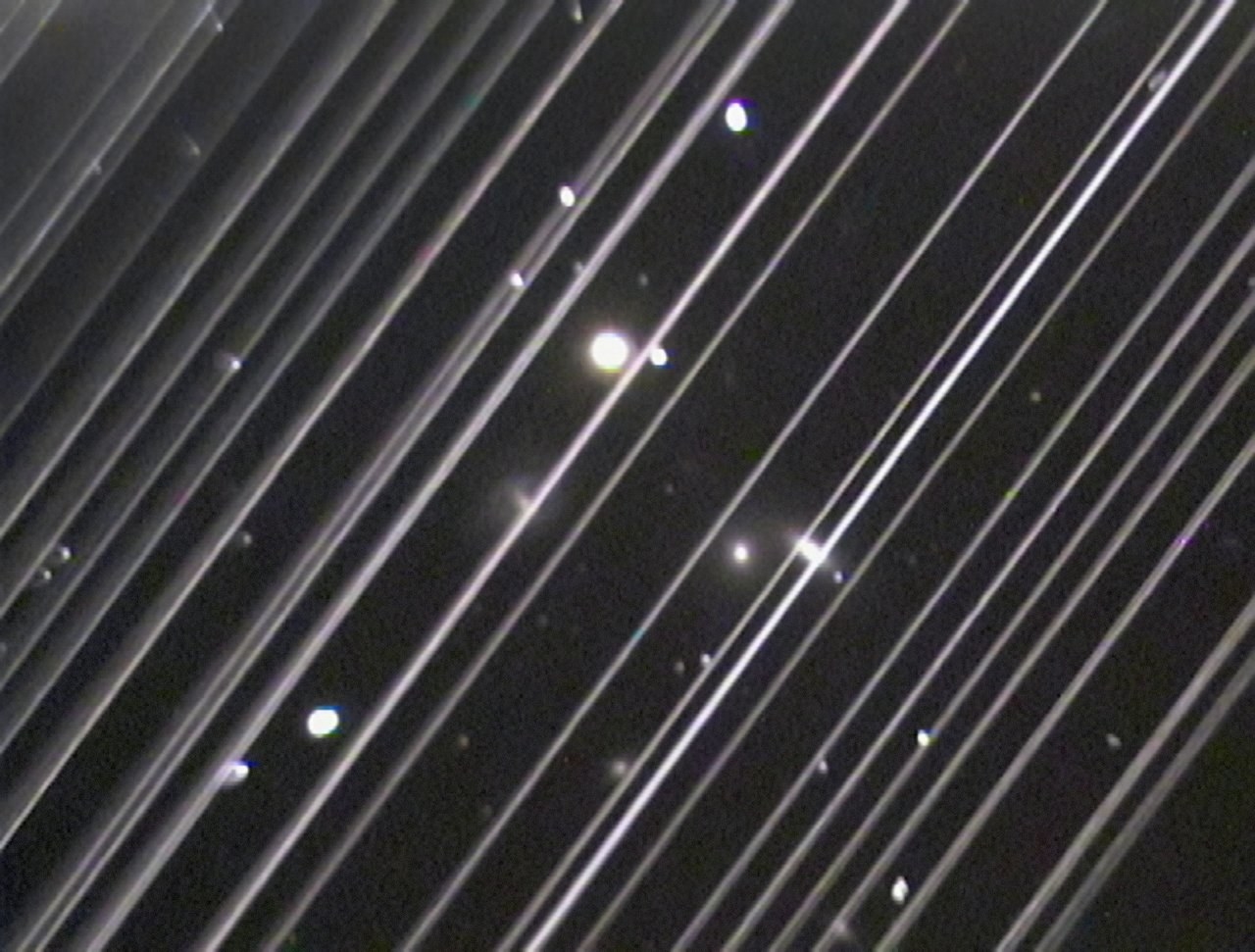Astronomers are worried that a small satellite swarm launched by Elon Musk’s SpaceX rocket firm last week will ruin deep space observations of distant stars and galaxies. And they are letting people know about it.
On November 11, SpaceX launched 60 “Starlink” satellites into low-earth orbit, bringing its total constellation size to 122 — already one of the largest satellite networks in space. The company plans to eventually launch 12,000 of the small broadband satellites by the mid-2020s in order to deliver global high-speed internet from space. The project is slated to cost $10 billion.
And astronomers are worried the thousands of shiny objects will clutter their observations of the sky, based on the early returns from the latest launch, which set a train of satellites on course for final orbits 340 miles high at a 53 degree inclination with the equator.
“Satellite constellations can pose a significant or debilitating threat to important existing and future astronomical infrastructures,” the International Astronomical Union said in a statement last May. The IAU said that reflected sunlight from the satellites will damage the sensitive optics of large observatory telescopes, and also interfere with new radio astronomy facilities.
The National Radio Astronomy Observatory that same month said it was having “fruitful” discussions with SpaceX about minimizing interference with its observations from Starlink satellites.
Musk acknowledged the concerns in a tweet shortly afterwards, and said he was asking engineers to reduce the reflectivity of the satellites to lessen their impact on astronomy.
More recently, the American Astronomical Society voiced concern about the sheer number of planned satellites overwhelming the night sky and leading to space collisions, filling valuable orbits with dangerous debris. SpaceX competitor OneWeb is planning its own giant constellation of broadband satellites starting in 2020.
Astronomers have little legal recourse for the light pollution from the satellites, space writer Jeff Foust of SpaceNews has noted. Space launches are approved by the Federal Aviation Administration and the satellites are licensed by the Federal Communications Commission.
Another two launches of Starlink satellites are planned for the rest of 2019.
- It Happened: Elon Musk Sent His Sports Car To Mars On A SpaceX RocketDan Vergano · Feb. 6, 2018
- The Trump Administration Is About To Enter The Space Race. Everyone Wants To Know How They’ll Deal With The Billionaires Building Their Own Rockets.Dan Vergano · Oct. 3, 2017
- The Cave Rescuer Suing Elon Musk Claims The Tesla CEO Fabricated Pedophilia Claims Against HimRyan Mac · Oct. 8, 2019
Dan Vergano is a science reporter for BuzzFeed News and is based in Washington, DC.
Contact Dan Vergano at [email protected].
Got a confidential tip? Submit it here.
Source: Read Full Article


